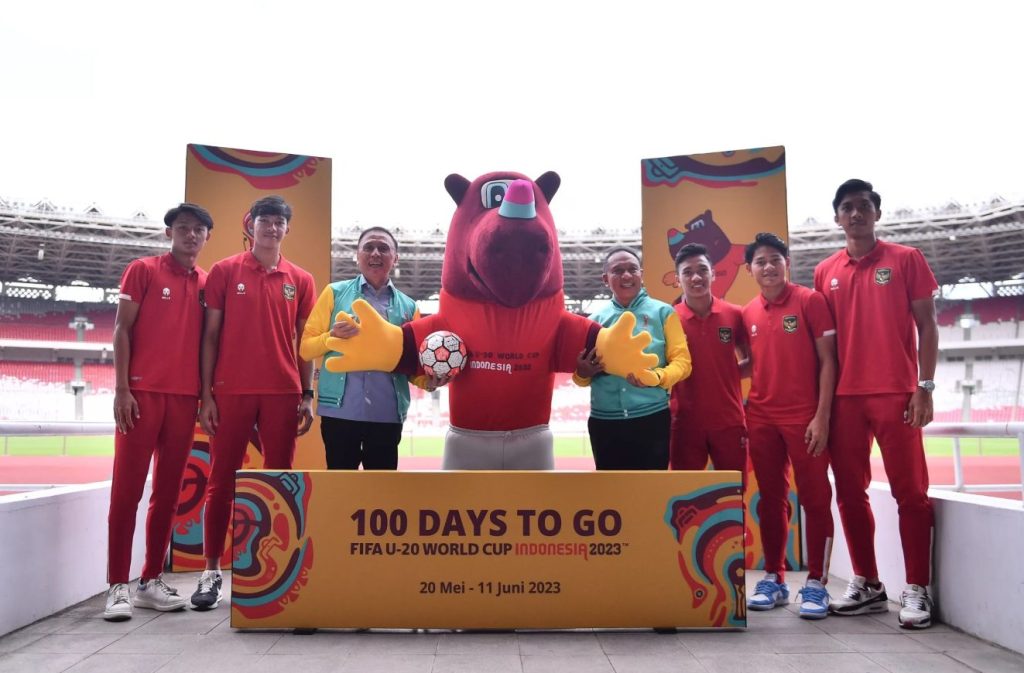Australia/Israel Review
The Lessons of Indonesia’s World Cup debacle
May 1, 2023 | Tammy Reznik, Tzvi Fleischer

Indonesia scored a spectacular own-goal in March when FIFA, the world soccer federation, cancelled Jakarta’s hosting rights for the 2023 Under-20 World Cup – scheduled to begin in late May.
FIFA was compelled to respond to declarations by senior Indonesian political leaders refusing to host an Israeli team as part of the international competition.
Despite Indonesian President Joko “Jokowi” Widodo urging his compatriots, “Don’t mix sports with politics,” this was a clear case of political grandstanding interfering with sporting competition – with results that were completely pointless and destructive.
And the fallout is far from over.
The real losers of this story were everyday Indonesians; a soccer-mad bunch. They will not only miss out on watching the tournament at home – their first-ever international soccer competition – but also lose international standing and credibility as well as much-needed tourist dollars.
Sadder still, they will even forfeit the right of the Indonesia Under-20 team to participate in the World Cup for the first time ever (hosting nation teams always have the opportunity of participating in the World Cup whether they qualified or not – and Indonesia’s team did not.) Such participation would have provided a golden opportunity to help develop Indonesian soccer into the future.
Furthermore, adding insult to injury, FIFA slapped sanctions on Indonesia, freezing funding for the Indonesian Football Association (PSSI).
Most Indonesians understand what they have lost. A recent poll shows that 71% of Indonesians surveyed had no problem with hosting the Israeli team – and almost as many regretted the loss of the Under-20 World Cup because of the anti-Israel political posturing.
Back in 2019, when Indonesia was awarded the rights to the tournament, it was an announcement that brought joy and pride to many in this football-mad country.
At that time, it was not known which teams would be qualifying and competing, and it was a surprise to many when Israel qualified for the first time in June of last year.
Despite Indonesia having no diplomatic relations with Israel, as well as a long tradition of taking unashamedly pro-Palestinian stances, it was clear that the national Government was prepared to host the Israelis, in line with the commitments it had made to FIFA. However, with general elections looming next February, political point scoring entered the picture and changed it.
After some earlier rumblings and some relatively small street protests by conservative Muslim groups, Bali Governor Wayan Koster stated that he would refuse to host the Israeli team on the Hindu-majority island, where the Israeli team was supposed to be based. He cited security concerns and Indonesia’s foreign policy for his decision.
He was joined by Central Java Governor Ganjar Pranowo, a frontrunner to be the candidate for the ruling PDI-P party in next year’s presidential elections, who also called for Israel to be excluded.
President Widodo sent Indonesian Soccer chief Erick Thohir to meet with FIFA boss Gianni Infantino in Doha to try to find arrangements to salvage the tournament, but it was already too late.
The irony in this tale is that, whilst Indonesia and Israel have no diplomatic relations, considerable covert economic, security and political relations between the two countries have existed for more than 20 years.
Israeli political leaders frequently meet quietly with their Indonesian counterparts, trade relations are estimated to be valued at more than US$500 million (A$755m) per year, and there is considerable tourism both ways between the two countries. So an Israeli team visiting Indonesia to play in an international tournament would hardly have required a major shift in policy for Indonesia.
Furthermore, the political grandstanding supposedly on behalf of the Palestinian cause achieved absolutely nothing for Palestinians, and Israel will still take part in the tournament.
The only winner from this whole affair is the apparent new tournament host Argentina – which will not only get all the tourism and reputational benefits, but also get to have its Under-20 team take Indonesia’s place in the tournament.
For Indonesian players and fans, the loss of the tournament has been devastating. As Indonesian striker, Rabbani Tasnim Siddiq, said on Instagram about the outcome caused by the politicians, “We sacrificed our time, thoughts, sweat and even blood. But it suddenly failed due to your political reasons.”
And the affair appears to be having some political fallout. Recent polls show the ruling PDI-P losing ground to Defence Minister Prabowo Subianto, the presidential candidate of the rival Gerindra party.
Yet despite all this, Bali Governor Wayan Koster still went on to announce he would also refuse to host Israeli teams at the 2023 ANOC World Beach Games scheduled to take place on the island in August.
After meeting with Indonesian Minister of Youth and Sports Dito Ariotedjo and Chairman of the Indonesian Olympics Committee (KOI) Raja Sapta Oktohari on April 14, Koster said unspecified arrangements were now agreed for the World Beach Games to go ahead. But he then issued a statement on April 22 re-iterating, “I remain consistent in refusing the Israeli team’s participation in the 2023 World Beach Games,” even as the Association of National Olympic Committees, which organises the World Beach Games, said it was “in close dialogue with the Indonesian authorities and Indonesian Olympic Committee to ensure all qualified NOCs [National Olympic Committees] are welcome in Bali.”
Israeli athletes have already earned the right to participate in the World Beach Games in at least the open ocean swimming and 3×3 beach basketball competitions, so it is unclear what will happen next.
PDI-P leaders like Koster and Pranowo really need to learn the lesson that, as President Widodo urged, sport and politics really shouldn’t be mixed.






